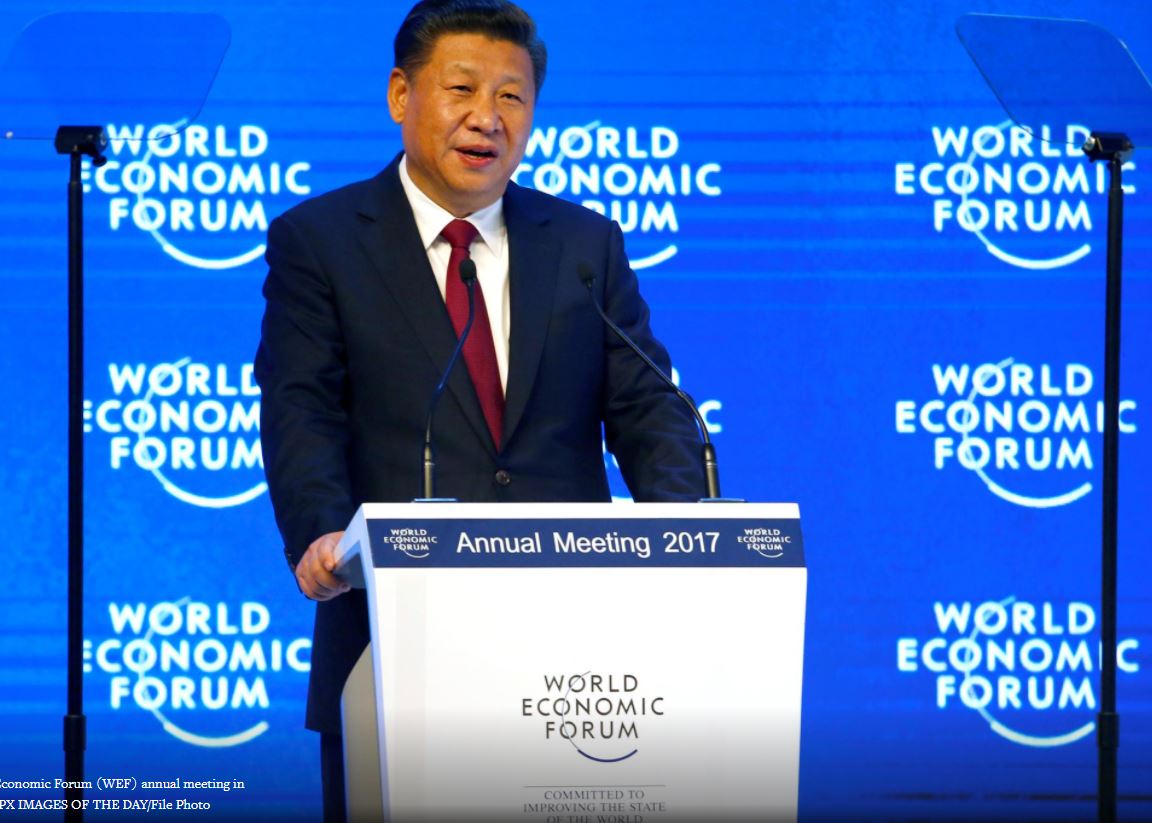Chinese President Xi Jinping warned that a “new cold war” could turn hot, and must be avoided, in a speech on Monday at World Economic Forum’s virtual “Davos Agenda” conference.
“We should respect and accommodate differences, avoid meddling in other countries’ internal affairs and resolve disagreements through consultation and dialogue. History and reality have made it clear time and again that the misguided approach of antagonism and confrontation — be it in the form of a cold war, hot war, trade war or tech war — will eventually hurt all countries’ interest and undermine everyone’s well-being,” Xi said, at the conference which included hundreds of world leaders and top businesspeople.
“We should build an open world economy … discard discriminatory and exclusionary standards, rules and systems, and take down barriers to trade, investment and technological exchanges,” he said.
Throughout the speech, Xi repeatedly returned to the importance of international cooperation on nearly every issue — except on those, like human rights, that he deems “internal affairs.”
Xi also warned of the danger of public health crises “recurring.”
He proposed a path to emergence from the pandemic basked on “macroeconomic policy coordination,” the avoidance of “arrogance, prejudice and hatred” in favor of “peaceful coexistence,” the reduction of global inequality, and the strengthening of global institutions on issues like public health and climate change.
China itself would more actively participate in global economic governance, he added.
Xi’s message is clearly aimed at new US President Joe Biden. Biden has also called for international cooperation to restart the global economy, but has also warned that he would pursue policies of isolating China.
Biden is evaluating tariffs on Chinese goods and wants to coordinate future steps with allies, White House spokeswoman Jen Psaki said Monday. She gave no indication of possible changes.
“The president is committed to stopping China’s economic abuses,” Psaki said.
It is, however, not clear that Biden will take the confrontational approach of his predecessor. It is more likely that he will undertake negotiations, in the hope of resolving at least some of the major issues, political observers say.
“What is clear from Biden’s appointments is that he values institutional experience, multilateralism and a foreign policy that puts alliances front and center,” says Stephen R. Nagy, a senior associate professor at International Christian University.
“Most indicative of that approach is the appointment of Kurt Campbell as the coordinator for Indo-Pacific affairs. His experience in formulating the initial “pivot to Asia,” deep experience in dealing with a host of challenges in the Indo-Pacific region, including North Korea and China, and his extensive networks domestically and internationally demonstrate that the Biden administration will be placing the Indo-Pacific at the core of its foreign policy.”






Click here to change your cookie preferences